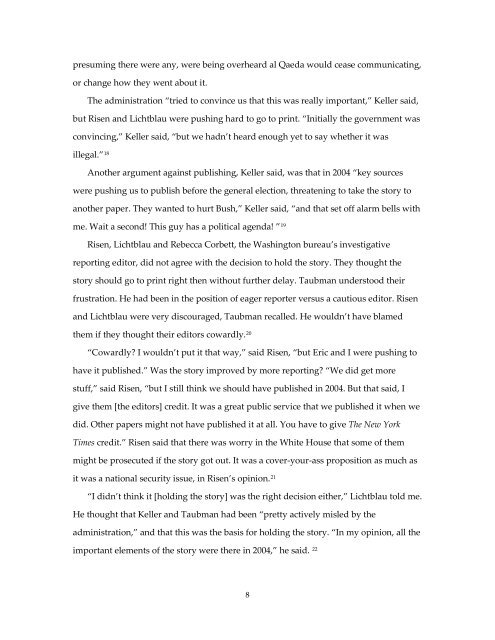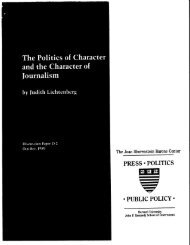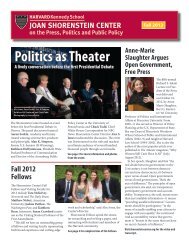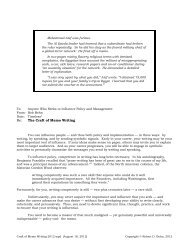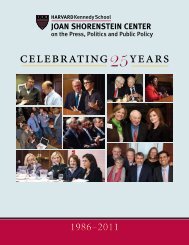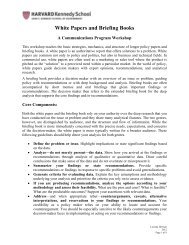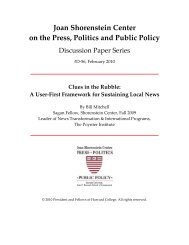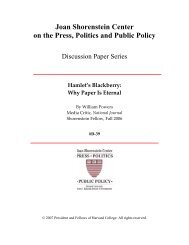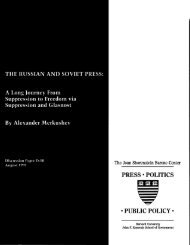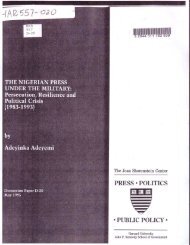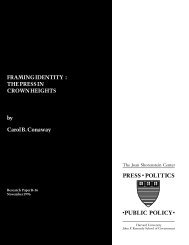Anatomy of a Secret - Harvard Kennedy School
Anatomy of a Secret - Harvard Kennedy School
Anatomy of a Secret - Harvard Kennedy School
Create successful ePaper yourself
Turn your PDF publications into a flip-book with our unique Google optimized e-Paper software.
presuming there were any, were being overheard al Qaeda would cease communicating,<br />
or change how they went about it.<br />
The administration “tried to convince us that this was really important,” Keller said,<br />
but Risen and Lichtblau were pushing hard to go to print. “Initially the government was<br />
convincing,” Keller said, “but we hadn’t heard enough yet to say whether it was<br />
illegal.” 18<br />
Another argument against publishing, Keller said, was that in 2004 “key sources<br />
were pushing us to publish before the general election, threatening to take the story to<br />
another paper. They wanted to hurt Bush,” Keller said, “and that set <strong>of</strong>f alarm bells with<br />
me. Wait a second! This guy has a political agenda! ” 19<br />
Risen, Lichtblau and Rebecca Corbett, the Washington bureau’s investigative<br />
reporting editor, did not agree with the decision to hold the story. They thought the<br />
story should go to print right then without further delay. Taubman understood their<br />
frustration. He had been in the position <strong>of</strong> eager reporter versus a cautious editor. Risen<br />
and Lichtblau were very discouraged, Taubman recalled. He wouldn’t have blamed<br />
them if they thought their editors cowardly. 20<br />
“Cowardly? I wouldn’t put it that way,” said Risen, “but Eric and I were pushing to<br />
have it published.” Was the story improved by more reporting? “We did get more<br />
stuff,” said Risen, “but I still think we should have published in 2004. But that said, I<br />
give them [the editors] credit. It was a great public service that we published it when we<br />
did. Other papers might not have published it at all. You have to give The New York<br />
Times credit.” Risen said that there was worry in the White House that some <strong>of</strong> them<br />
might be prosecuted if the story got out. It was a cover-your-ass proposition as much as<br />
it was a national security issue, in Risen’s opinion. 21<br />
“I didn’t think it [holding the story] was the right decision either,” Lichtblau told me.<br />
He thought that Keller and Taubman had been “pretty actively misled by the<br />
administration,” and that this was the basis for holding the story. “In my opinion, all the<br />
important elements <strong>of</strong> the story were there in 2004,” he said.<br />
8<br />
22


